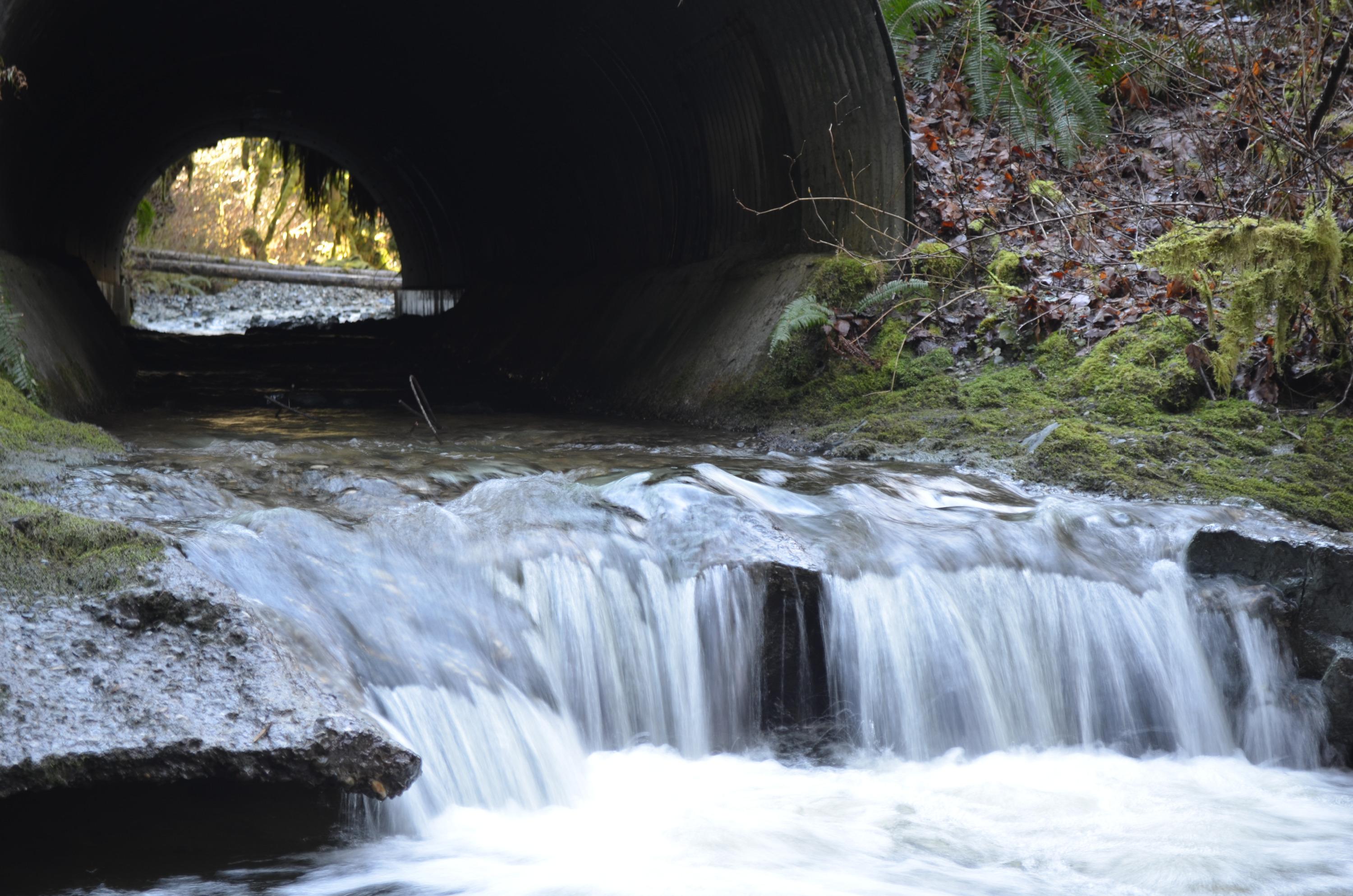
Salmon on their way up from northwest Washington's Skagit River have to leap two feet onto the jagged edge of this pipe to make it to habitat upstream.
Eilís O'Neill, KUOW / EarthFix
A big court decision could open up new habitat for salmon in Washington and end up costing the state billions of dollars. The case stemmed from poor maintenance and design of road culverts, which can block fish passage upstream.
A panel of the 9th U.S. Circuit Court of Appeals Friday denied the state’s request to rehear the case. A lower court had ordered the state in 2013 to fix hundreds of road culverts.
Road culverts are those metal pipes or concrete boxes you see carrying streams underneath roads. There are thousands across the Northwest.
The tribes said culverts are a big reason they're not able to catch fish in the way that their treaty rights with the U.S. government guaranteed.
"This is a win for salmon, treaty rights and everyone who lives here," said Lorraine Loomis, chair of the Northwest Indian Fisheries Commission, in a statement. "Fixing fish-blocking culverts under state roads will open up hundreds of miles of habitat and result in more salmon. That means more fishing, more jobs and healthier economies for all of us."
Related: Making Sure Salmon Can Cross (Under) The Roads In Washington
In 2013, a lower court ruled that poorly maintained and designed culverts violate tribal treaty rights. The ruling meant that the state department of transportation would have to fix 90 percent of the habitat blocked by its culverts over 15 years.
According to the tribes, more than 800 state culverts block salmon habitat. (There are also culverts owned by cities, counties and landowners.)
The state argued that many of the culverts wouldn't open up enough habitat because, in many cases, the habitat will still be blocked further up or downstream.
John Sledd, one of the lead attorneys for the tribes, said the decision is important for tribes and salmon.
"Culverts are a big problem for salmon populations, and they are a relatively easy one to fix," he said. "They're really critical to opening up the habitat so that all the other habitat improvement work that people are working on can actually have fish get back to it and take advantage of it."
A spokesman for the Washington Attorney General's office said the state is considering options at this point.
Dissenting judges on the 9th Circuit Court of Appeals panel said this case "sets up precedent that could be used to challenge activities that affect wildlife habitat in other western states."
Sledd argued the decision only applies on a case-by-case basis.
Fixing culverts is expensive work. Fish passage managers previously told EarthFix that the $700 million over 16 years included in Washington Gov. Jay Inslee's budget proposal isn't enough for all the work that's needed. In its case, the state estimated it could end up paying $1.88 billion to fix more than 800 culverts, although that amount is disputed.
"We're always looking at ways that we can fully fund that and I think it's going to be clear that the legislature will need to find additional ways to pay for those remaining barriers," said Inslee spokesperson Tara Lee, in an earlier interview.
The state has already started to fix some culverts, and officials said they are seeing results: fish can reach new habitat almost immediately once the projects are finished.
Fawn Sharp, President of Washington's Quinault Indian Nation and the Affiliated Tribes of Northwest Indians, said more salmon need access to good habitat.
"Although the state has been fixing (culverts), at its current pace, it would take a century to finish the job. The salmon can't wait that long. Our Tribes and everyone else needs those culverts to be fixed as soon as possible," Sharp said in a statement.
